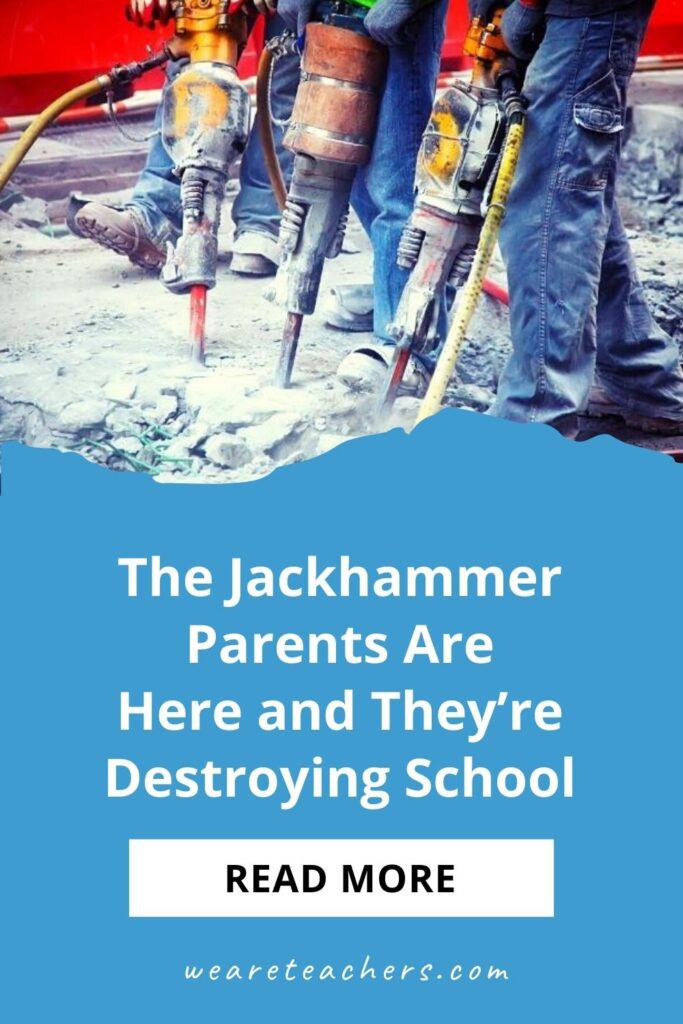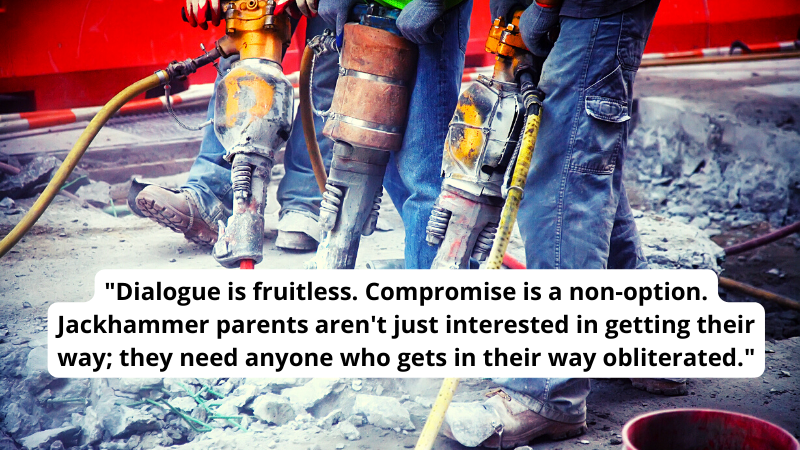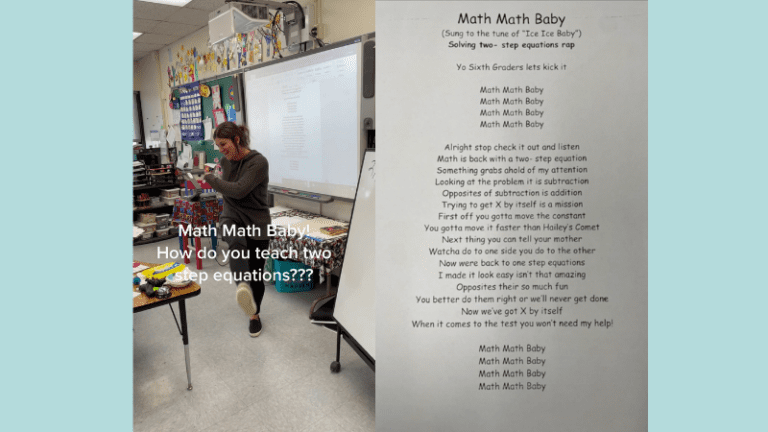While I was on maternity leave from my teaching job this past fall, my long-term sub texted me with a concern. A small group of sixth grade parents were upset about Warriors Don’t Cry, a book on my syllabus by one of the Little Rock Nine, who integrated Central High School in 1957.
I wasn’t surprised. Texas had just recently passed legislation banning educators from teaching critical race theory, so I expected some of my curriculum would come under fire. I knew how I planned to defend my curriculum, but I also knew my rights as a new mom.
“They don’t get access to me right now,” I typed back. “Tell them you’re sure that I’ll be happy to respond when I get back on October 29. You can also tell them we won’t read that book until spring. Sorry you’re having to deal with this.”
“I’m not concerned for me,” she responded. “I’m worried for you when you get back. I haven’t come across parents like these before.”
Maybe other teachers would worry after hearing this, but I didn’t. I’d been teaching for 11 years; seven of them at our school for highly gifted children, and I’d never had parents I wasn’t able to work with beautifully after a few months of communicating. Most unreasonable parents are driven by fear, I knew, and it just takes time and communication to replace that fear with trust.
“This happens a lot with sixth grade parents,” I texted back. “They’re nervous about middle school, but we build a lot of trust the first semester. Come January it’s smooth sailing. I appreciate you looking out for me, though. It’s going to be fine 😊.”
It would not be fine.
I was still optimistic when I returned to the classroom in October.
Our counselor had met with the sixth grade parents and (mostly) squashed concerns about the book. But it wasn’t long before I learned that a handful of sixth grade parents had far more problems with me than my book choices. Even before my return, they’d been circulating their grievances in conversations, group texts, and social media posts:
Our kids have had two English teachers on maternity leave two years in a row. How is this fair?
She had her baby in June. If she’d started her maternity leave right after her baby was born, she could have been back in September instead of October. I want to know how she’s planning to address the gaps in learning she created.
I saw on her author page that she posted about being ready for “a glass of wine the size of her head” on a Friday. Is this the kind of reputation we want our teachers to have?
(That last one took me out, by the way. I’ve said way less professional things on my author page.)
As the semester went on, I discovered that the pattern that had always served me—build trust, smooth sailing—would not be the case this year. No matter how engaging I made my lessons or how kind I was to their children, I just couldn’t get there with this group. I was the enemy: out to either indoctrinate their child, keep them from succeeding with the gaps I created by having the gall to go on maternity leave, or make their child feel sad with the books in my curriculum. I started having to get to school at 6:30—more than two hours before school started and way too early to see my baby in the morning—to have enough time to respond to parent complaints, ones that often boiled down to my curriculum being too hard or too easy for two different children in the same day.
Once, a parent criticized that I always chose the same class to take my break to pump. Because of this and the added frustration that our host campus wouldn’t give me my own key to my pumping closet, I decided to stop pumping a full six months before I was ready.
I kept asking myself and other people, “Why? Why is this happening? Why this year?” Although it didn’t occur to me at the time, I eventually realized there was an actual answer.
The Jackhammer Parent
Disclaimer: The jackhammer parent is a made-up, unofficial title, and I am not a parenting expert. I have exactly one child and he can’t even talk yet, so that’s the extent of my personal parenting knowledge.
However, I am an expert in creating a common language for nameless phenomena in the teaching profession. I made up the acronym DEVOLSON to identify the period of time in the school year when students and teachers are simultaneously struggling the most. I wrote a piece a few years ago on my concerns about the lawnmower parent. There is undeniable power in being able to name a struggle for a collective group of people, even if it’s a silly word or acronym. It may not fix the problem, but it lets the people experiencing the problem know that their concerns are real, valid, and shared by others in their community. And my newest concern is the jackhammer parent.
Similar to the helicopter and lawnmower parents before them, jackhammer parents scrutinize both their children’s opportunities and challenges, intervening in schooling, grades, and friendships. But born during the added pressures of a pandemic and divisive political climate, jackhammer parents take their intensive parenting to new heights. Dialogue is fruitless. Compromise is a non-option. They’re not just interested in getting their way; they need anyone who gets in their way obliterated.
The jackhammer parent has a few defining characteristics:
1. They are relentless.
Unlike the jackhammer parents’ patient and sensible parent counterparts, there is no reasoning with a JP. Once a jackhammer parent has latched on to a particular issue (e.g., Noah should be in the advanced math class, or Maya’s teacher has it out for her), there is no dialogue unless that dialogue involves them getting their way. (By the way, some issues deserve our relentless attention, like things that threaten the health and safety of our kids.)
2. They are loud.
Somehow, the jackhammer parent has both the time and energy to communicate around the clock. Near-daily emails—usually to the principal and school board members before the teacher. Phone calls. In-person meetings. Hogging the microphone at school board meetings. Trashing teachers and schools on social media. Ironically, many jackhammer parents are proud of this loudness, touting their refusal to meet with or listen to experts as “advocacy.”
3. They are destructive.
You can’t ignore the destructiveness of a jackhammer parent in the same way you can’t ignore an actual jackhammer. You can’t glue a busy roadway that’s been crushed into pebbles back together, and you can’t recover the time wasted dealing with jackhammer parents. Schools don’t have the capacity to mitigate the stress, lost time, or unrecoverable resources diverted to dealing with jackhammer parents.
4. They are powered by fear.
Fear is a big motivator for all of us, but jackhammer parents are particularly terrified. Years of hearing about the pandemic’s impact on learning loss and emotional distress in children have parents on edge. Political action committees convince them that schools are systematically undoing their families’ values during the day. Like I mentioned earlier, even when I think the fears are misguided or blown out of proportion, I can empathize with a scared parent. Constantly reflecting on the possibility of your child’s academic, emotional, or moral collapse would send any of us scrambling for solutions. The difference is that jackhammer parents’ solutions channel that fear in an unhealthy direction, making adversaries out of teachers and administrators.
Clearly, jackhammer parents are a problem. But are they a permanent problem? Could the jackhammer parent be part of a passing phase driven by collective pandemic suffering? Might things die down when all of this *gestures wildly* gets a little easier?
Maybe. But we can’t afford to wait and find out.
This is why I’m very worried about jackhammer parents …
Most districts have no structure (or weak structures) in place for dealing with jackhammer parents.
Schools impose plenty of guidelines on communication for teachers, but absolutely no limitations on parent communication. They can email as much as they want, request and schedule as many meetings as they want, and do so as many times as they want for the same issue even if it’s already resolved. At some point, teachers and administrators have to be able to say no, and districts need to create structures that support this boundary and protect their ability to do their job.
They undermine the value of discourse with professional educators.
It’s true that parents know their child better than anyone else. But too often this has come to mean that parents should get to ignore professional advice and be the ones to make all educational decisions regarding their child. Teachers have a unique perspective and wisdom that comes from seeing and working with hundreds of children in a single age group (not to mention their specialized degrees, training, certification, etc.).
Would we march into an architectural engineer’s office and say, “Hey, I know I’ve never done this job, but I really don’t think you need a column there”? Would we tell our endocrinologist, “You know, I don’t think the visible holes on the ultrasound of my thyroid are accurate. I’m going to switch my medication to Flintstones vitamins instead.” Actually, I don’t know. Maybe some jackhammer parents would.
We’re setting a dangerous precedent.
We’re already at a staggering teacher shortage. Too many teachers who value their time, skills, and families have already left the classroom this past year. Do we really want to see who’s left in classrooms if we keep giving jackhammer parents control?
Even after whittling my own group of jackhammer parents to a total of three by the end of this school year, that was enough to make me fall out of love with a job I had previously treasured. I read a quote from Adam Grant recently that said, “If work violates your values, quitting is an expression of integrity.” No matter how much I love teaching or how talented I am or how wonderful my school is, I won’t work somewhere where I’m paid next to nothing to defend my expertise to people who have no idea how to do my job.
Unless we do something about jackhammer parents, a lot more of us are going to follow suit.
Have you dealt with a jackhammer parent? Tell us about it in the comments!
Looking for more articles like this? Be sure to subscribe to our newsletters.


